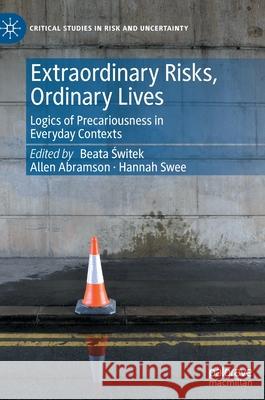Extraordinary Risks, Ordinary Lives: Logics of Precariousness in Everyday Contexts » książka
topmenu
Extraordinary Risks, Ordinary Lives: Logics of Precariousness in Everyday Contexts
ISBN-13: 9783030839611 / Angielski / Twarda / 2022 / 330 str.
Kategorie:
Kategorie BISAC:
Wydawca:
Palgrave MacMillan
Seria wydawnicza:
Język:
Angielski
ISBN-13:
9783030839611
Rok wydania:
2022
Wydanie:
2021
Numer serii:
000822739
Ilość stron:
330
Waga:
0.57 kg
Wymiary:
21.01 x 14.81 x 2.06
Oprawa:
Twarda
Wolumenów:
01
Dodatkowe informacje:
Wydanie ilustrowane











